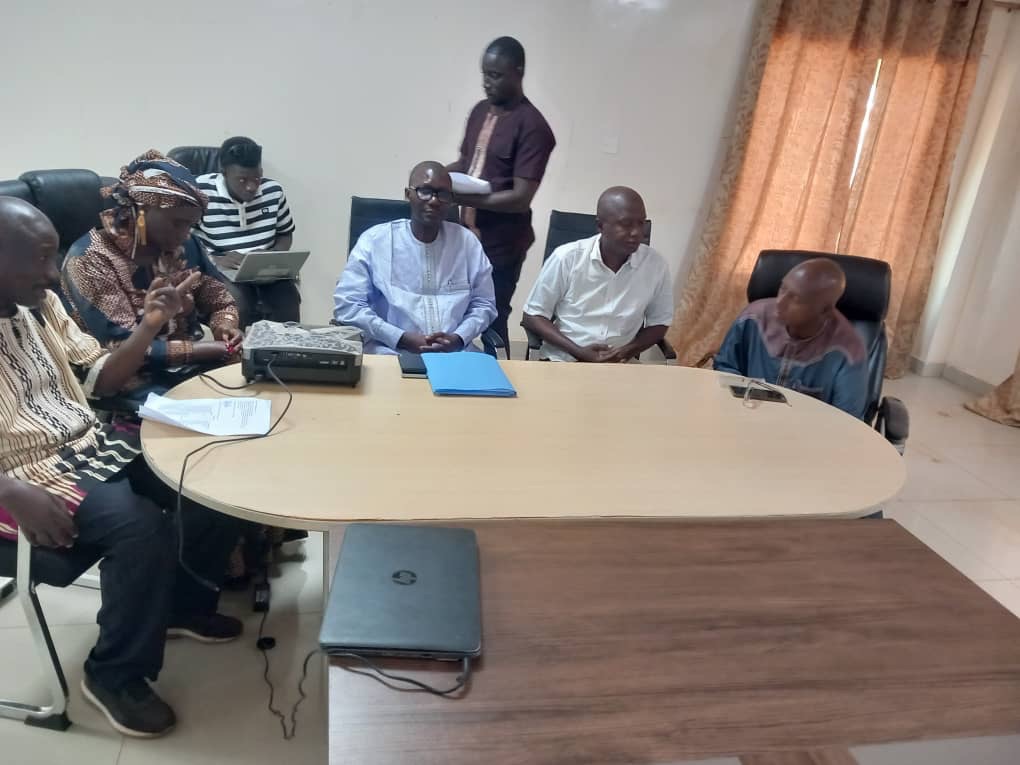By: Haruna Kuyateh
Stakeholders involved in the Global Environment Facility (GEF)-funded National Beekeeper Association of The Gambia (NBAG) recently gathered in Jokadou to validate the findings of an evaluation of the UNDP Global Environment Project’s Small Grant Programme (SGP).
The project, titled Building Resilience of Jokadou National Park Beneficiary Communities Affected by Climate Change and COVID-19, aims to promote sustainable beekeeping practices in several communities along the mangrove gallery forests and surrounding landscapes of Jokadou National Park.
Communities such as Bali Mandinka, Bali Hali Hawa, Chisseh Majaw, Kerr Alhaji Karoo, Kerr Amadou Fayol, Kerr Gumbo, Ndrammeh Joka, and Sancha Malick have participated in this initiative, which focuses on improving livelihoods through beekeeping while also preserving the environment. The validation workshop aimed to assess the project’s impact, challenges, and overall effectiveness.
Jerro Maane, the Beekeeping Technical Advisor, highlighted the importance of the validation, noting that community participation in the process is vital for adding value to the project and ensuring the communities take ownership of the findings. He emphasized that the main goal of the project is to protect nature and build the capacity of local livelihoods to withstand climate change, which has forced many to rely on unsustainable natural resource exploitation.
Ismaila Sanyang, representing the Department of Water Resources and the Governor’s Office, spoke about the critical role of beekeeping in mitigating climate change and promoting economic diversification. He stressed that beekeeping and the honey business are essential for improving both income and the health of local populations.
Buba Sowe, the evaluator for the project, expressed his gratitude to the management and coordinators of the GEF-funded project for their efforts in promoting beekeeping and sustainable environmental practices. He noted that the validation of these findings is crucial in guiding future donor decisions. The Building Resilience of Jokadou National Park Beneficiary Communities project is an 18-month initiative aimed at providing alternative livelihoods for vulnerable communities affected by climate change and COVID-19, to reduce their dependence on environmentally harmful coping strategies.
Sowe explained that without intervention, these coping strategies could further jeopardize the survival of plant and honey bee species in the area. He reiterated that the project’s goal is to reduce the social vulnerability of marginalized populations by offering alternative livelihoods that protect ecosystems and biodiversity in the park’s protected areas. The evaluation will assess project indicators, beekeeping training effectiveness, live performance, and challenges faced by participants, along with matched recommendations for improvement.
Siaka Manga, Manager of the National Beekeeper Association of The Gambia (NBAG), expressed gratitude to the GEF and UNDP SGP for funding the project. He noted that the initiative would help communities adopt beekeeping and best practices in honey harvesting techniques. Manga emphasized the nutritional value of honey and its by-products, such as soap and body cream.
Manga urged beneficiary communities to support the association in promoting beekeeping as a livelihood, which also contributes to the restoration of forest cover. He revealed that 55 communities nationwide are currently implementing beekeeping practices, demonstrating their commitment to forest restoration. He also called on individuals and communities to prioritize tree planting and avoid illegal logging and bushfires.
Chief Alpha Mariam Khan of Jokadou commended the intervention by the GEF and the NBAG for enhancing resilience through beekeeping in the region. He noted that the initiative would contribute significantly to forest development and protection. Chief Khan encouraged beneficiaries to remain vigilant and become ambassadors for the project’s success.





